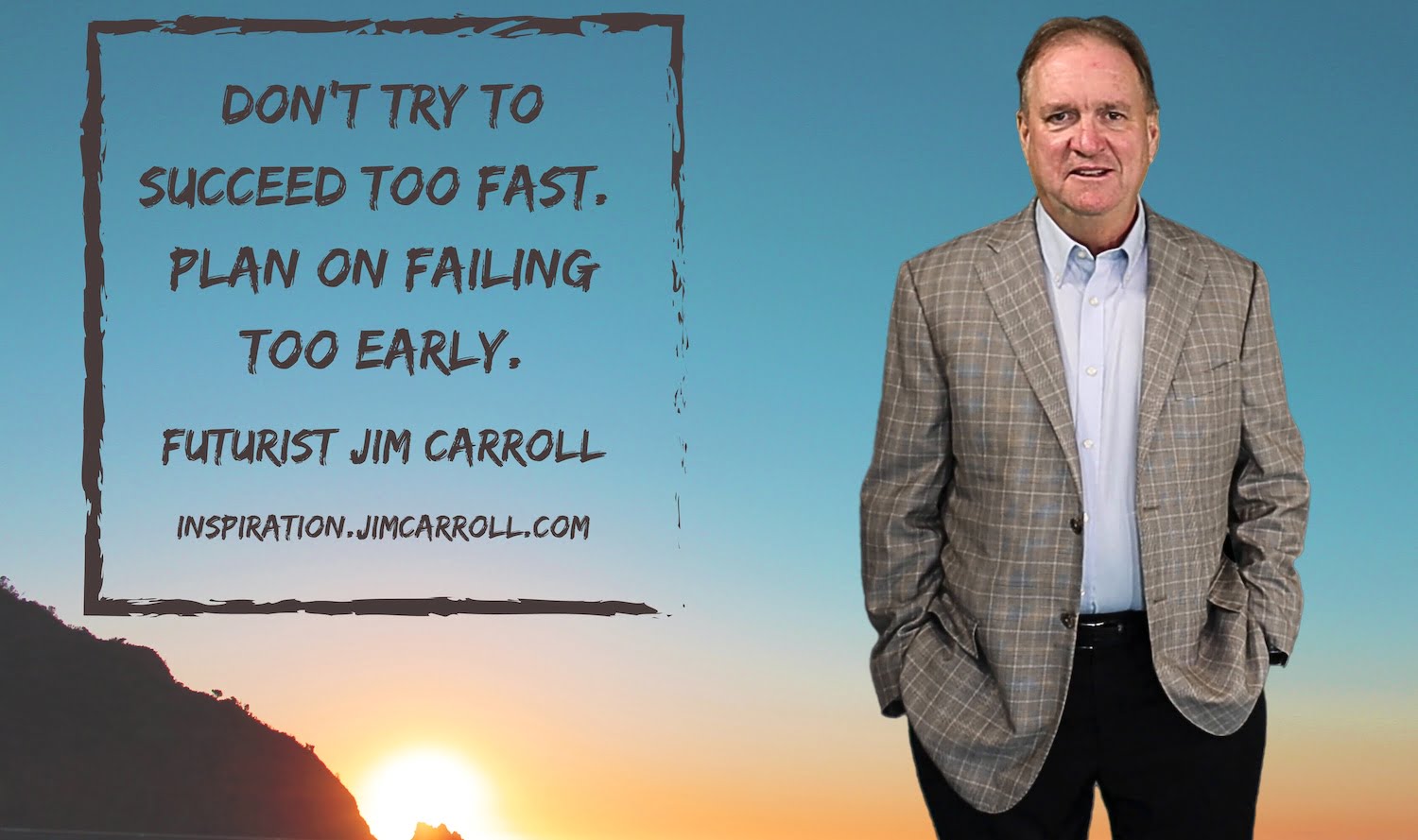“Don’t try to succeed too fast. Plan on failing too early” – Futurist Jim Carroll

During my travels last week, I saw what must be one of the greatest commercials of all time, at least to me. From Uber, it promotes its new ‘Uber Reserve‘ service, which allows you to do exactly what it suggests, up to a month in advance.
https://www.youtube.com/watch?v=Py6dl1qafPA
I admit it – I’m an ‘airport dad’ – early in the car, early to the airport, early to the gate!
When it comes to lines, in fact, I like to be first – giving me a reputation at my ski club for my position in the lift lines, as well as at the golf course, where I’m known for usually being first off the tee.
But I will also often talk in my keynotes about those who are first to industry, market, or product, taking on the role of achieving what is known as ‘first-mover advantage.’ Some say that by being first, they can establish strong brand recognition, ensure long-term customer loyalty as well as relationships with key retailers, as well as locking up exclusive agreements with suppliers. Not only that, but by setting the pace within the new market, they can establish strong industry standards which can help them in the long term.
“First mover advantage’ is a cause long-championed by Silicon Valley and the tech industry, and there is a long list of companies that have enjoyed the benefits of this space, the best example being Amazon, followed by Google and Amazon. Each was first to a newly established industry or business model and has successfully solidified its position over time. Being a first-mover isn’t a guarantee of a long-term future though – a series of missteps can destroy the advantage. Witness Netscape, the original Web browser from 1994. Companies can often lose the benefit of being first through a series of subsequent mistakes, miscalculations, hubris, or complacency and destroy their first-mover advantage – consider what is happening at this very moment with OpenAI.
In addition, there are also detractors who suggest that being second, third, or even later in a market can be the best role to take on. Apple is the best example in this regard, particularly with its ability to establish the future of the music industry. I lived through this as did many others – I had a variety of MP3 players from 1997 until Apple came out with the original iPod in 2001. Famously, they are known to carefully study new opportunities, innovating and strategizing carefully to ensure overall dominance once they do begin to participate – with iTunes and digital music distribution being another great example of their savvy thinking.
That’s where the idea of failing too early as opposed to succeeding too fast comes in. If you think about what Apple and others do in chasing ‘second mover status’ is this: they carefully work within or watch and observe a new industry or product line before they commit. Behind the scenes, they are innovating, testing, developing – and failing with their initial ideas and attempts, quietly and privately, and with lower risk than in doing so in public. The whole idea of failing early rather than succeeding too fast has wonderful merit because it implies that the focus is not just on developing the new product, but also on developing the skills, insight, knowledge, and other capabilities that go with long-term success.
The key bit of insight? Early failure provides crucial knowledge for solidifying long-term success!
As for the airport Dad? While getting to the gate 5 hours early is a bit of a stretch (and I’ve never been THAT extreme), there is a certain satisfaction and peace of mind that comes from managing time so exquisitely!




GET IN TOUCH
Jim's Facebook page
You'll find Jim's latest videos on Youtube
Mastodon. What's on Jim's mind? Check his feed!
LinkedIn - reach out to Jim for a professional connection!
Flickr! Get inspired! A massive archive of all of Jim's daily inspirational quotes!
Instagram - the home for Jim's motivational mind!